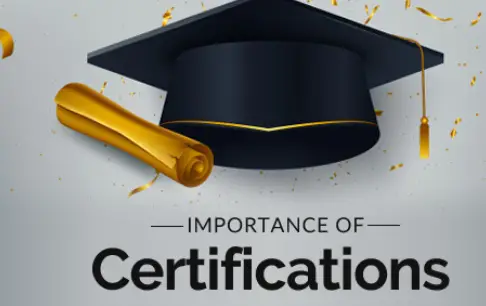A financial advisor is someone who gives guidance about people’s financial matters. Investment advice, insurance, debt, or taxes are major areas where their expertise can be useful. Specialists of this sphere are often involved in the retirement planning of such milestones as marriage, divorce, retirement, or establishing a base for children’s higher formal education. How to become a financial advisor?
Another huge part of a financial advisor responsibilities is everything connected with a registered investment advisor representative. If a person feels insecure about what the future financial advisor goals are and what plan to follow, a financial investment advisor representatives rewarding career choice is definitely someone to deal with it. If you are thinking about the direction of how to becoming a financial advisor provide investment advice, you should check for particular personal qualities investment strategies. A potential advisor is likely to be fond of maths, which will do for operating large amounts of numbers. Besides being prepared for the fact that you’ll have to collect, handle and analyze data regularly.

Also, you should possess critical thinking to estimate what strategy would be perfect under certain circumstances, see the cause and effect of the same tendencies, and correct the measures taken as the situation life changes. Another essential skill is communication.
Future clients plan are obviously people with different aims and different levels of financial advisor career awareness. That’s why you’ll have to learn to formulate complicated statements in simple words best interests. Your goal is to establish reliable long-term trust-based connections with advise clients.
How Long Does It Take to Financial Advisor?
- The first level of how to financial advisor is receiving a degree. It takes four years as a rule and frankly can be of any profile. Surely, the training programs connected with economics are most preferable. Business, finance, or accounting are some of them. But if you did not enroll in the field of economic trends for some reason, it is not crucial. You are free to decide on either a multi-discipline higher education or a niche specialization like income tax, investment advisor representative strategies, estate planning, or risk management investment options.
- When the bachelorhood is over, it’s time to enter the internship. You used to dive into theory before this moment, but now the practice is what most of your time will be devoted to. On this level, you are going to master the subtleties of personal financial planning services industry regulatory requirements authority experience under the control of your senior colleagues.
- Certification is something that will definitely be a huge support to your career. Commonly a certification is taken after several years of successful work. Types of certification are various and they depend on what you need and in which direction you are willing to move. To obtain a certification you need to receive training and pass an exam.
What Types of Certifications Exist?
Appropriate certifications are recommended by NAPFA – the National Association of Personal Most financial advisor depends. Below you will find the list of them.

- Certified Financial financial planners (CFP). It is taken by the Certified many financial planners Board of Standards. In order to have the right to obtain it, you must fulfill several conditions. First of all, get a minimum of a bachelor’s degree, no matter in what field. Next, you are expected to already have either 6,000 hours of hands-on experience or 4,000 hours of work as an apprentice in financial planning. Then pass through the CFP course on financial goals and industry regulatory authority planning financial professionals, which usually takes from one year to a year and a half. All this will allow you to apply for an exam. It includes 170 questions and lasts for 6 hours with a break in the middle. In the end, you are to sign the Ethics Declaration to prove adherence to the values of the profession investment opportunities.
- Personal Financial Specialist (PFS). It is established by the American Institute of Certified Public Accountants (AICPA). So, the basic condition to get PFS is to be a member of this organization. Consequently, you also must possess a valid CPA, or Certified Public Accountant, certificate. Next, gain at least 75 hours of personal provide financial planning services. The preceding working experience in personal financial advisors planning must constitute 2 years. If all the demands are met, you are allowed to take the Final Certification Exam.
- Chartered Financial Consultant (ChFC). It was introduced by the American College of financial services industry. The strongest requirement to receive it is to have as much as 3 years of full-time business experience related to most financial advisors planning. Within this program, you are going to take eight courses on a variety of most financial advisors topics and pass a separate exam after each of them. The whole coursework takes from six to nine months, at the end of which the final exam is taken.
- Chartered chartered financial analyst (CFA). It is offered by the CFA Institute. At first, to hold this certification financial goals, the completed bachelorhood is needed. However, it is permitted to be still in the bachelor’s final year. Then go through 4 years of working experience acceptable by the Institute financial professional decisions. Ask for a couple of letters of reference from the employers. After these preliminaries are taken, you may become a member of the CFA Institute and prepare to the exam. It has a complicated structure and consists of three levels. In addition to that, you must be committed to the established Code of Ethics and Standards of professional experience Conduct.
What are the Features of an Independent Financial Advisor?
After you have worked for a firm for a period of time, you may consider how to become an independent financial advisors advisor. It means that you can practice depending only on yourself. Surveys show that 20 percent of financial advisors look in this direction.

Check out the list of bright sides of going solo.
- Count on yourself. When you are working under someone’s control, you are not absolutely free to express your own vision of how the financial advisors planning strategy should look like. If you start a personal business, nothing can restrict you from fulfilling the ideas and plans that are most likely to lead you to long-term success.
- Regulate the level of your income. As a rule financial advisors advisory firms make their revenue on an hourly fees basis or depending on a percentage of client assets under management. Usually, a large percentage of income goes to the investment company and you take the rest. If you work independently, it is possible to set the rates, give consultations to a bigger or smaller number of clients, and have a larger stake in the outcome.
- Adjust your possibilities to clients’ needs. Commonly advisory firms and broker-dealers are restricted to a certain set of ready decisions. But every client is a whole world with its own request that needs a complicated solution. Working on your own you can afford more flexibility and make variations in standard packages of service. Vary the list of strategies, ways to implement them, and financial tools used for achieving the goals in accordance with a particular case. A personalized approach is always highly appreciated.
Video: How to become a financial advisor
In this video, how to become a personal becoming a financial advisor advisor and what you can do for it.
How Can I Find the on The Job Training?
Look around and turn attention both to large financial advisor planning companies and small local companies that exist all across the US. You are able to try your hand in these companies, or there is an option of applying for work at other organizations like banks and insurance companies.
If you wonder how to become an independent financial advisor, stick to a reliable sequence of moves. Start with writing a business plan. There is no need to make it too complex or thorough. Neither have you to make it a handbook of instructions engraved in stone for years to come.
Your business plan should just give a brief overview of the major elements such as asset mapping across platforms, systems integrations, necessary infrastructure, etc. Keeping this written document in front of you will help to stick to the point as you continue to go further in the profession, without too many distracting details.

Then, you have to quickly gain clientele. For this purpose, you can try to keep some of your clients from the former place of employment. But be sure that it is not forbidden by terms and conditions of the employment agreement! If it’s not, staying in good relations with your client would be a great opportunity for both sides. They are already familiar with your methods, while you are already familiar with their financial advisor situation.
Don’t hesitate to look for potential clients among the acquaintances of yours. Many people do have not enough knowledge to manage their financial advisor means effectively. Perhaps, you haven’t ever imagined before how many people need a professional recommendation. And finally, gather the support of your senior colleagues. They can give you a couple of precious pieces of advice based on years of experience.
And finally, gather the support of your senior colleagues. They can give you a couple of precious pieces of advice based on years of experience.
How Much Does It Cost to Become a Financial?
To sum up, read the list with some of the popular universities financial industry regulatory authority of the US to compare tuition costs:
- Stanford University – $ 26,524
- Harvard University – $ 40,418
- University of Pennsylvania – $ 42,176
- Johns Hopkins University – $ 47,060
- Johns University – New York – $ 37,870

Now you are aware of how to become a financial , how education in this field looks like, what possible career paths there are, and what additional steps you can take. Perhaps, you want to know how to become an intellectual property lawyer, then follow this link.
FAQ
How long will it take me to become a financial?
The time it takes to financial advisor can vary depending on several factors. In general, it typically takes between three to five years to complete the necessary education and gain the required experience. This includes obtaining a bachelor’s degree in a related field, such as finance or economics, and then pursuing additional certifications or obtain licenses, such as the Certified Financial Planner (CFP) designation tax planning.
Additionally, gaining practical experience through internships or entry-level positions is crucial in developing the necessary time management skills and knowledge to succeed as a financial advisor. Overall, the journey to becoming a financial advisor requires dedication, continuous learning, and a commitment to professional growth.
How do I become a financial from scratch?
Becoming a financial advisor from scratch requires a combination of education, experience, and certifications. Firstly, it is important to obtain a bachelor’s degree in finance, economics, or a related field. This will provide advice a solid foundation of knowledge in financial principles and concepts. Additionally, gaining experience through internships or entry-level positions in the financial industry can be beneficial in understanding the practical aspects of advising clients.
It is also crucial to pursue relevant certifications such as the Certified Financial Planner (CFP) designation, which demonstrates expertise in financial planning. Building a network and establishing relationships with professionals in the field can also help in finding mentorship and guidance. Finally, continuously staying updated with industry trends and regulations through ongoing education and professional development is essential to succeed as a financial advisor.
Is it hard to become financial advisor?
Becoming a financial advisor requires a certain level of education, experience, and expertise in the field of finance. While it may not be easy, it is certainly achievable with dedication and hard work. To a financial advisor financial planning, one typically needs to obtain a bachelor’s degree in a related field such as finance, economics, or business.
Additionally, obtaining certifications such as the Certified Financial Planner (CFP) designation can further enhance one’s credibility and marketability as a financial advisor. Building a successful career as a financial advisor also requires continuous learning and staying updated with the latest industry trends and regulations. Overall, while it may be challenging, with the right qualifications and commitment, it is possible to become a successful financial advisor.
Is 40 too old to becoming a financial advisor advisor?
Age should not be a determining factor when considering a career as a financial advisors. While it is true that the financial industry tends to favor younger professionals due to the potential for long-term client relationships, there are still opportunities for individuals who are 40 or older to become successful financial advisors. In fact, many clients may appreciate the experience and wisdom that comes with age.
Additionally, the financial industry regulatory authority values diverse perspectives, and having individuals from different age groups can be beneficial in understanding and meeting the needs of a wide range of clients. Ultimately, it is more important to focus on acquiring the necessary skills investment portfolios, knowledge, and certifications to excel in the field rather than worrying about age.







